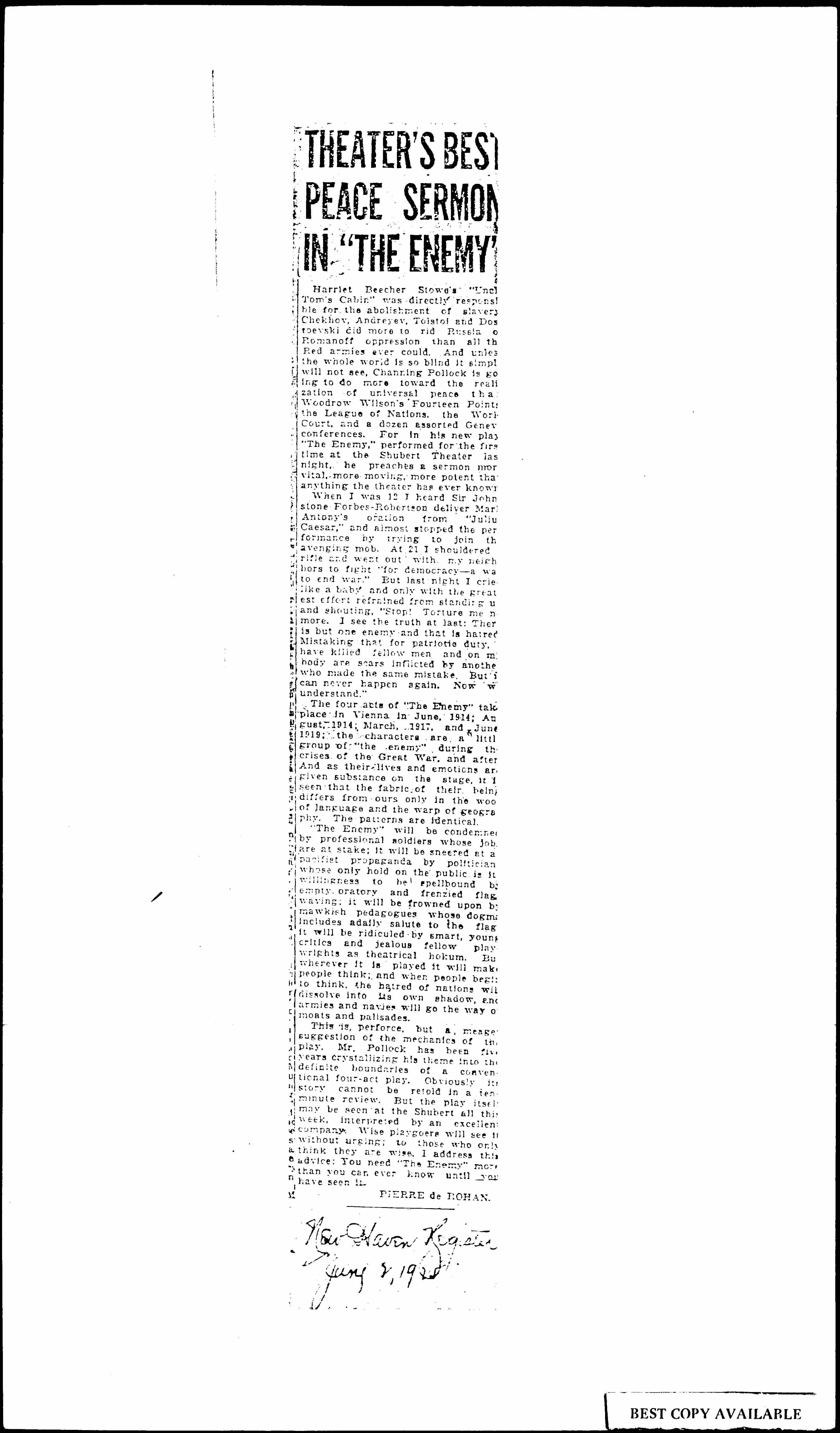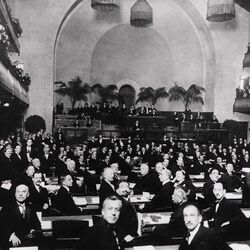THEATER'S BEST PEACE SERMON IN "THE ENEMY"
Harriet Beecher Stowe's "[Uncle] Tom's Cabin" was directly responsible for the abolishment of slavery. Chekhov, Andreyev, [Tolstoy] and [Dostoevsky] did more to rid Russia [of] [Romanov] oppression than all [the] Red armies ever could. And [unless] the whole world is so blind it [simply] will not see, Channing Pollock is going to do more toward the realization of universal peace [than] Woodrow Wilson's Fourteen Points, the League of Nations, the [World] Court, and a dozen assorted [Genova] conferences. For in his new play, "The Enemy," performed for the [first] time at the Shubert Theater [last] night, he preaches a sermon [more] vital, more moving, more potent [than] anything the theater has ever known.
When I was 12 I heard Sir Johnstone Forbes-Robertson deliver Mark Antony’s oration from "Julius Caesar," and almost stopped the performance by trying to join [the] avenging mob. At 21 I shouldered [a] rifle and went out with my neighbors to fight "for democracy -- a [war] to end war." But last night I [cried] like a baby and only with the greatest effort refrained from standing [up] and shouting, "Stop! Torture me [no] more. I see the truth at last: [There] is but one enemy and that is hatred. Mistaking that for patriotic duty, [I] have killed fellow men and on [my] body are scars inflicted by [another] man who made the same mistake. But [it] can never happen again. Now [we] understand."
The four acts of "The Enemy" [take] place in Vienna in June, 1914; August, 1914; March, 1917, and June 1919; the characters are a [little] group of "the enemy" during [the] crises of the Great War, and after. And as their lives and emotions [are] given substances on the stage, it [is] seen that the fabric of their being differs from ours only in the [wool?] of language and the warp of geography. The patterns are identical.
"The Enemy" will be condemned by professional soldiers whose [jobs] are at stake; it will be sneered at a pacifist propaganda by [politicians] whose only hold on the public is [its] willingness to be spellbound by empty oratory and frenzied flag waving; it will be frowned upon by mawkish pedagogues whose [dogma] includes a daily salute to the flag; it will be ridiculed by smart, young critics and jealous fellow playwrights as theatrical hokum. [But] wherever it is played it will make people think; and when people begin to think, the hatred of nations [will] dissolve into its own shadow, and armies and navies will go the way [of] moats and palisades.
This is, perforce, but a [meager] suggestion of the mechanics of the play. Mr. Pollock has been five years crystallizing his theme into the definite boundaries of a conventional four-act play. Obviously its story cannot be retold in a ten minute review. But the play itself may be seen at the Shubert all this week, interpreted by an excellent company. Wise playgoers will see [it] without urging; to those who only think they are wise. I address this advice: You need "The Enemy" more than you can [even] know until you have seen it.
PIERRE de ROHAN
↑New Haven Resister
June 2, 1925↓

















Comments